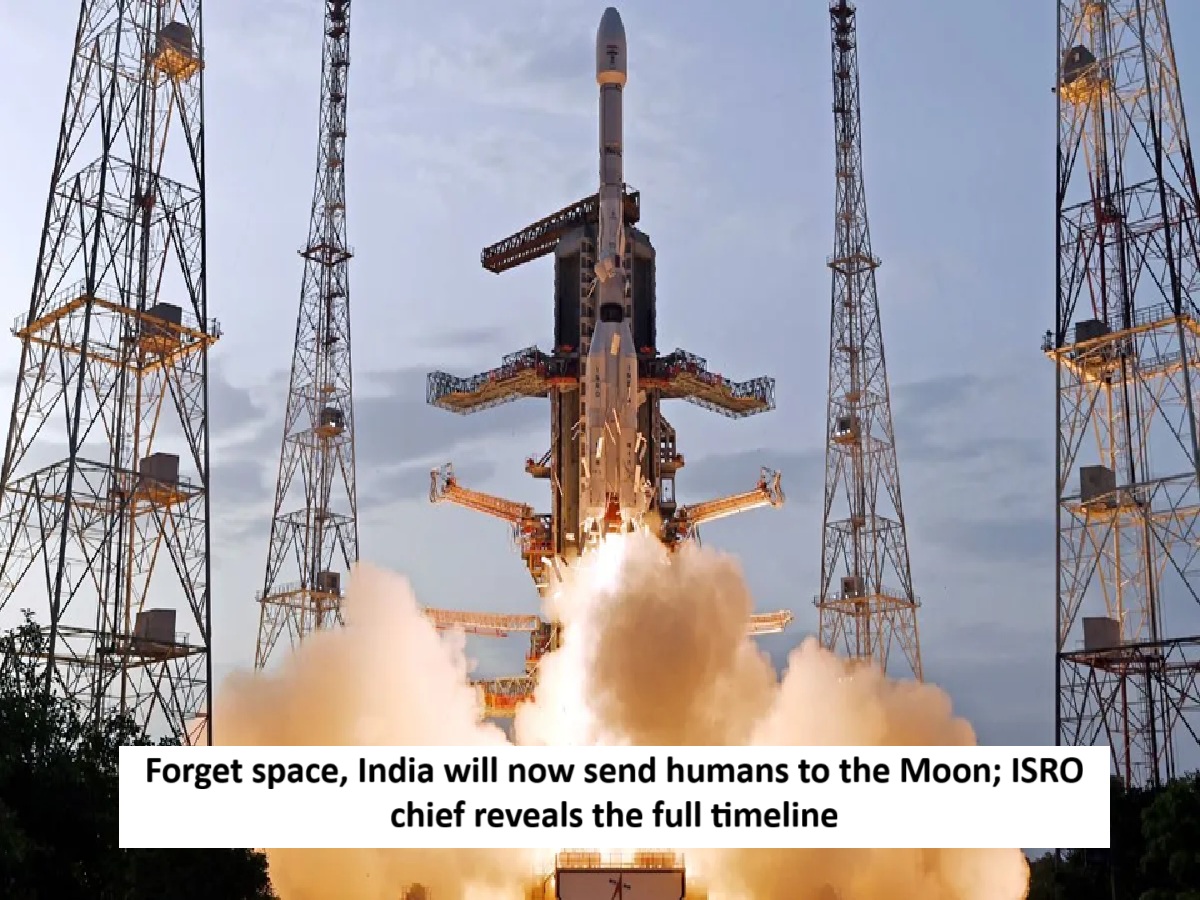
News Topical, Digital Desk : Indian Space Research Organisation (ISRO) Chairman V. Narayanan announced on Wednesday that India aims to land its citizens on the Moon and bring them back safely by 2040. India's first human spaceflight, Gaganyaan, will launch in 2027. Narayanan made the remarks at the 35th convocation of the Birla Institute of Technology (BIT) Mesra in Ranchi.
'Today there are 300 startups working in the space'
The ISRO chief said that India is emphasizing self-reliance in the space sector, but is open to international collaboration on global issues such as climate science and space research. Narayanan said that the Indian National Space Promotion and Authorization Centre (IN-SPACE) has revolutionized the space sector by involving private companies and startups. While there were only a few startups a few years ago, today more than 300 startups are working in satellite manufacturing, launch services, and space data analysis. These startups are helping in areas such as agriculture, disaster management, telecommunications, rail and vehicle monitoring, and fisheries.
Preparations are underway to increase launch capacity
India is expanding its launch capabilities to meet larger goals, such as human missions to the Moon. Narayanan said, "We initially launched satellites weighing 35 kg, but now we are developing a capacity of up to 80,000 kg." To this end, a third launch pad is being built at Sriharikota, costing approximately ₹4,000 crore. It will also support next-generation launch vehicles (NGLVs).
ISRO's achievements are proudly counted
Narayanan proudly noted that Chandrayaan-1 discovered water on the Moon, and Chandrayaan-3 made the first soft landing near the Moon's south pole. India recently achieved docking and undocking capability in space with the SPADEX mission, becoming the fourth country to achieve this feat. Furthermore, the 100th launch (GSLV F15/NVS-02 mission) from Sriharikota has also been completed.
He also spoke on the future of AI and robotics.
Narayanan said AI, robotics and big data are the future of space missions. He said, "Just as no one could have imagined the computer revolution 35 years ago, AI and robotics will determine the next phase of space exploration." The ISRO chief said India has 23 nuclear reactors in 8 major nuclear plants, including Tarapur and Bhabha Atomic Research Centre. Narayanan said India is today the fourth largest economy in the world and is number one in 9 sectors in the space sector.
--Advertisement--

 Share
Share



